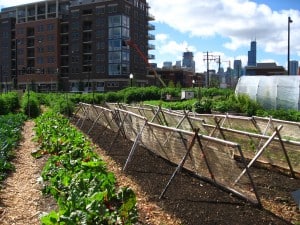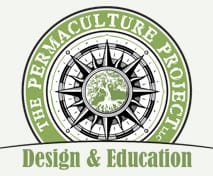 The idea and practice of Permaculture has been expanding ever since founder Bill Mollison visited the US in the 1980’s. But in the last ten years it has begun to go viral. Permaculture is now moving into the mainstream at a rapid rate. Because of its comprehnsivity Permaculture’s time has come. Permaculture deals with agriculture, animals, aquaculture, the built environment, the waste stream, building a non-linear, circular system in which the ideal is a zero waste system. Basically, Permaculture is a complete life path where nothing is taken for granted and where everything that we place into the landscape sits in functional relationship to everything else. With the state of the world such as it is, people are seeking ways to become more self-reliant, to know where their food comes from, to diminish their ecological footprint on this earth. Permaculture covers all the bases and supports this revolution in terms of reintegrating with the natural cycles that have existed long before us and will exist long after we are gone. Permaculture is about, as stated in its ethics, care of earth, care of people, fair share.
The idea and practice of Permaculture has been expanding ever since founder Bill Mollison visited the US in the 1980’s. But in the last ten years it has begun to go viral. Permaculture is now moving into the mainstream at a rapid rate. Because of its comprehnsivity Permaculture’s time has come. Permaculture deals with agriculture, animals, aquaculture, the built environment, the waste stream, building a non-linear, circular system in which the ideal is a zero waste system. Basically, Permaculture is a complete life path where nothing is taken for granted and where everything that we place into the landscape sits in functional relationship to everything else. With the state of the world such as it is, people are seeking ways to become more self-reliant, to know where their food comes from, to diminish their ecological footprint on this earth. Permaculture covers all the bases and supports this revolution in terms of reintegrating with the natural cycles that have existed long before us and will exist long after we are gone. Permaculture is about, as stated in its ethics, care of earth, care of people, fair share.
There is a strong movement in urban community gardening, natural building and circumvention of total collapse of infrastructure in urban centers, to put communities back together. This typically revolves around growing food and helping local folks regain a sense of health and balance. Permaculture, which is the umbrella for all of these practices is certainly at the forefront of the relocalization of food resources in this country and is having a profound affect in cities.
Permaculture does not pigeonhole people into specific categories of race, religion, color, anything. It works for folks across the board. It is about earth repair, and, ultimately, this does not exclude anyone because of the immanence of the practice, and the need at this time in history. There are hundreds of small farms, home utility gardens, naturally built structures, etc popping up all over the world. Encouraging signs proliferate everywhere.
Some cities in the world feed a large majority of their population with food grown right at the doorstep, so to speak. The urban gardening movement in America has taken off in the last few years. It is incredible what can be grown on a postage stamp size plot. The nutritional health of people in urban environments is tantamount to health all the way around: socially, politically, economically. What better way to cure the ills of food deserts then to grow healthy produce within city limits and supply the nutritional needs of the urban population. Another important aspect of this is that when people garden together communities evolve. When people garden they benefit from the healthy physical practice of gardening. When people grow their food close to home it eliminates all the supply line issues of the corporate food scene and also the addictive use of fossil fuels for not only transport, but conventional farm practices: synthetic fertilizers, huge tractors and combines, etc.
Permaculture is not limited by scale, whether urban, suburban or rural. The methodologies and principles hold true no matter where we place our systems. We can grow food on a hundred acres or on the thirtieth floor of an apartment building in the city. One of the central tenets of Permaculture is to design and implement perennial food systems, rather than simply annual cropping. An ideal combination: a mixed culture of perennials and annuals. Cities are ripe for these kinds of systems: abandoned lots, city parks, along street corridors, in back and front yards, etc. When we supplant the typical annual only culture and monocultural practices of the current agricultural realm we help to reestablish ecosystem health and utilize the ecosystem services that are indigenous to the place in which we have settled. All of this can only mean renewed vigor and balance to what has been over wrought by the industrial mindset, especially in the last two hundred years.
The current state world and all its constraints is overwhelming. We cannot make the type of changes that need to be made on international and national levels. It all begins at home and with small scale, intensives efforts. Permaculture promotes just this. Personally, I will continue to work at this intensive scale and help to educate and inform people on the possibilities for long-term ecological health if we make the repair that is necessary to get there.
